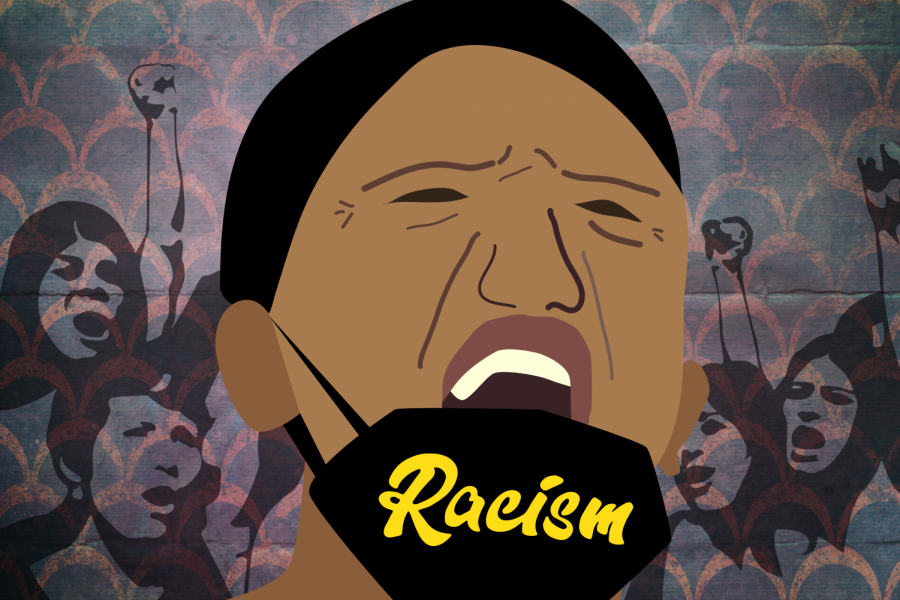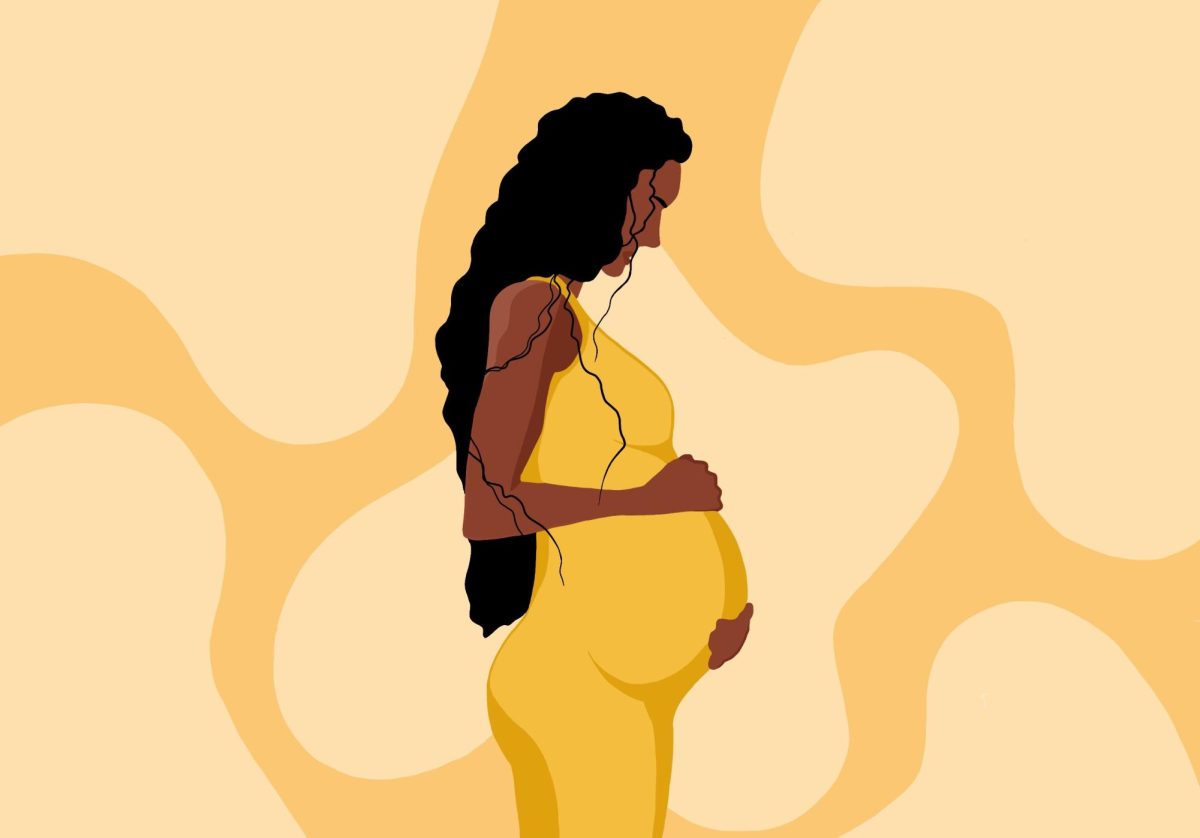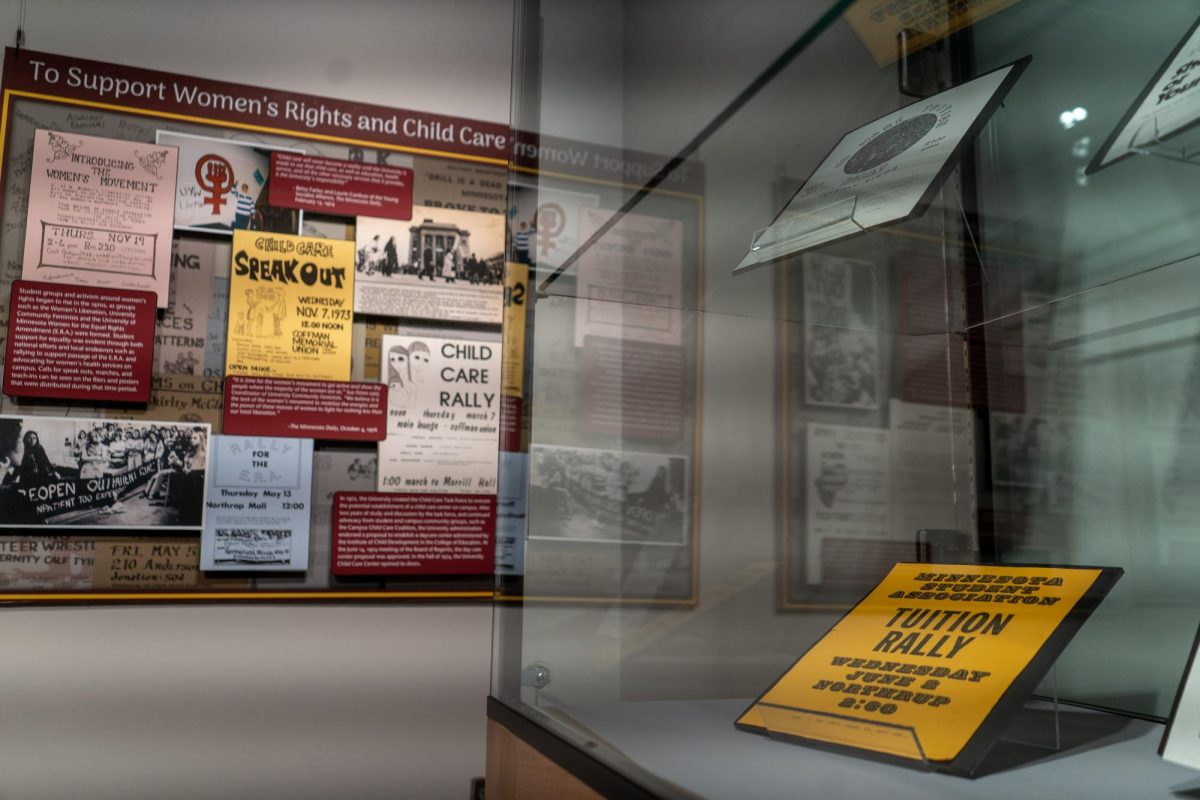In the wake of the police killing of George Floyd in Minneapolis in May, the University of Minnesota’s Professional Student Government (PSG) formed two task forces to confront policing and institutional racism at the University.
The task forces are working to fill gaps in diversity, equity and inclusion throughout the professional school experience, Eman Qureshi, the president of PSG, said.
Given that Floyd was killed in an interaction with law enforcement, the policing task force was the first of the two to get started.
“While campus safety and policing are big parts of racially systemic issues, there seems to be a general, broader problem of having problematic curriculum and — especially in the professional space — a lack of representation in Black, Indigenous and people of color voices,” Qureshi said. “The two [task forces] ended up happening naturally when we were brainstorming and coming up with areas that we wanted to focus on.”
Policing task force
One of the policing task force’s first initiatives was to establish a permanent campus safety committee in the University Senate. The Senate officially established the committee in November, Qureshi said.
“Having the committee as part of the Senate as opposed to an advisory board would mandate a University response for any issues that come up,” Qureshi said. “We learned that an advisory board could only do advising. Contrast that with having a Senate committee that is institutionally part of the University: It carried a lot more weight in terms of a sustainable space for students’ concerns.”
In August, the University hired Dr. Cedric Alexander to complete a comprehensive review of the University of Minnesota Police Department and University public safety policies. Alexander has since completed his review, releasing the official report on Jan. 26. Some students have been critical of the report, which did not align with student activists’ push to abolish or defund UMPD.
During the review, the policing task force put its work on hold in order to collaborate with Alexander and use his position to avoid the red tape that often comes with administrative change. Many of the task force’s primary recommendations were incorporated into his analysis, Qureshi said.
Josh Lesser is a third-year law student and the vice president of PSG. He is also the establishing member of the policing task force, where his role is to facilitate conversations about improving campus safety and professional students’ relationships with campus law enforcement.
“Now we really have some meat to work with and have recommendations that we can take forward,” Lesser said. “We have made progress with the campus safety committee, but we need to do more — and it is critical that we continue this movement for long-term change.”
The policing task force is focused on increasing officer training regarding racial equity and bias, shifting toward a community policing model, the hiring of a more diverse police force and disarming police on campus, Lesser said.
Institutional racism task force
Seah Buttar is a first-year medical student and the establishing member of the institutional racism task force.
In professional schools especially, students would like to see more of a focus on racial equity and anti-racism curriculum, Buttar said. It is important because of the impact that socially ill-prepared doctors, lawyers or public health professionals could have on a community.
“There is a lot of room to inflict unintended harm on the student body if you’re not addressing these issues well,” Buttar said. “We should go above and beyond a simple training module. It should be a discussion that faculty have with each other, staff, researchers or anyone that would be able to have a touch point with the student body.”
However, when it comes to curriculum changes, professional schools have run into some difficulty.
“For example, the law school has requirements from the [American Bar Association] that restrict the school’s ability to manage its own curriculum,” Lesser said.
There is also a gap when it comes to having a dedicated position to represent the professional students at the vice provost or associate vice president level. Buttar said this makes having a seat at the table more difficult for professional students. The Graduate School has a vice provost and dean of graduate education.
Increasing diversity among students and faculty are both action items in the institutional racism task force’s official proposal.
The proposal asks that the University reevaluate its decision to shut down the General College in 2005.
The General College served students underprepared for post-secondary education in subjects like English, writing and math. The college served a large number of student athletes and admitted the most students of color out of any University college.
“The General College functioned as a gateway for students from underrepresented backgrounds and it served as a pipeline to push undergraduate students into graduate and professional spaces,” Qureshi said.
At the time, the University’s president, Robert Bruininks, was critical of the college’s graduation rates, calling them “intolerably low.” Less than 33% of students starting out in the General College would go on to earn a degree within six years, according to Minnesota Public Radio.
The college transformed into a department within the College of Education and Human Development (CEHD). Since then, the faculty and programs in the department have been disbanded to other CEHD departments.
Another action item of the institutional racism task force is to create a committee in each professional school on which students participate in the hiring process of department heads and administrators.
A report from the University’s Office for Equity and Diversity, cited in the task force’s proposal, found that 96% of undergraduate and graduate students of color and 83% of white undergraduate and graduate students have had their education positively impacted by professors of color.
“It is very important to us to have these student committees in each college,” Qureshi said. “When students are looking at what school to attend for the next two to five years, they want to know that they are at a place where they are learning from people who look like them — who are from their similar backgrounds.”
In the spring and summer semesters, the institutional racism task force wants to expand its efforts to all University system campuses, Buttar said. And then it will push the professional schools to implement its proposals — along with the changes already promised, including hiring and retaining more faculty from underrepresented backgrounds and making tuition free for students whose families make less than $50,000 a year.
“We want to show them that what students are advocating for right now is the bare minimum,” Buttar said. “We want to show them how each team can go above and beyond in their specific [professional] schools.”



















Enn Arre
Feb 25, 2021 at 3:27 pm
Thank you for tryign to point this out. I brought someting similar to this up in the past to no avail when I had to correct the author of previous article who stated “the police shooting of George Floyd” This showed a lack of understanding the difference between individual events and bluring this event with other events. A practice we are told to never do, to atribute one event and apply that behavior to others withing any “grouping” of people. (sterotyping). They then changed it to “murder of…” Still not accurate! ( also note that “police shooting” is accurate in cases that do involve an officer shooting a suspect, but even that does NOT imply murder” even it it later is found to be the case in the court system) This tragic event should be referred to as “death in police custody” until the trial is over. This is a fact and cannot be disputed. He died during an interacton with police. This is not an opinion like “murder” or “killing” are at this time. None of us know what evidence will be presented at trial that may or may not support “murder” or “killing” to be facts of the case. Until then we must remain neutral and not add to the incediary language so many people want to use these days. And when the verdict is rendered we must accept that our courts are being fair. I’m afraid too may people are really looking for revenge rather than justice and the preparations for security during the trial attest to that. I know people will assume I am biased in some way but I do not have an opinion yet, how could I, I have not heard the evidence yet!
CapnRusty
Feb 25, 2021 at 2:39 pm
The policemen who have been accused of committing a crime resulting in Mr Floyd’s death will be tried in a courtroom in March. Until the jury renders its verdict in that trial, those policemen are innocent. “Innocent until proven guilty” is a fundamental principle of Western Civilization. The author’s use of the phrases “the police killing of George Floyd” and “Floyd was killed in an interaction with law enforcement” reveal his/her disregard for, or ignorance of, the blessings of liberty which he/she enjoy as a consequence of the sacrifice of many in the past.